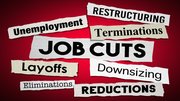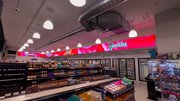Blog
3 cases illustrating how Amazon outclasses its competitors
Amazon continues to soar by innovating in ways other can't imagine.

November 16, 2015 by Chris Petersen — Owner, IMS
As I post this blog, Amazon has broken the barrier again as the most "expensive" stock. AMZN shares are now trading for 942 times diluted earnings over the past 12 months! Amazon is the only stock that has cracked the 900 price-to-earnings barrier! Many would argue that Amazon's stock is overvalued. Perhaps. On the other hand, investors crave a leader, especially an innovator that creates new paths that others can't follow. Bezos mantra: "It's still Day One" still drives innovation in ways that competitors can't seem to fathom, or counter. Case studies are unfolding right now that are demonstrative of Amazon's power to innovate, disrupt and compete on another level that just might justify that lofty stock price!
Why this is important: Even if you are on the right track you'll get run over if you aren't moving fast enough. But, Amazon doesn't worry about running faster! They are focused on innovation that creates new playing fields where tracks are obsolete.
Case 1 — Why Amazon is buying up local postal facilities
This case study seems to be off the radar and not mentioned in the press. Amazon has been quietly buying up old and abandoned postal facilities in major and suburban markets. Why would Amazon buy these abandoned sites? Do they plan use them to open stores?
Amazon's purchase of available postal facilities is a stroke of pure genius designed to solve the dilemma of the "last mile of delivery" to the end consumer! Amazon cannot begin to fulfill all of the future Prime and 24-hour delivery requirements, even if they have 100+ US distribution centers. And, as it expands Amazon Fresh, it needs hubs and delivery at a very local level.
Think about the advantages of owning local postal oriented facilities being abandoned by the US Postal Service and others:
- They are in prime locations with good access to routes and transportation
- They already have loading docks designed for trucks and moving goods
- These facilities were designed and equipped to handle parcels for delivery in the cities they served
We have posted before about the strategic competitive advantage of state-of-the art distribution and logistics. Convenience and speed are just as important as price when today's omnichannel consumers evaluate where to purchase.
Amazon is creating a whole new playing field by purchasing local facilities that will serve as the critical cross docks and distribution for the "last mile" that will enable and differentiate Amazon Prime and Amazon Fresh. As you see Amazon Fresh expand to new cities, look for corresponding Amazon acquisitions of local postal and parcel facilities.
Case 2 — Amazon defying strategy and wisdom by opening stores
Why would Amazon ever open a physical store? Why would they need to? Amazon's business model and strategy is not based on owning physical stores. In fact, if you look at the many struggling retailers, stores are a physical burden and major operating cost. Given Bezos' strategy and acquisitions, opening stores seems to defy logic and reason.
Amazon has dabbled in physical spaces before. Amazon has experimented with "pick up lockers" in 7-11 stores and other locations. Amazon has also opened a small store footprint on the campus of Purdue University. Given Apple's success in linking to education, and the fact that universities are mega centers for millennials, more Amazon campus shops is not be surprising, but also not earth shaking
But plans to open "real retail" stores in Seattle is something entirely different. Before we get carried away, Amazon's headquarters is in Seattle. Given that consumer focus groups can easily cost $10,000 per study, a physical store could be a very smart research and marketing investment in terms of understanding consumer behavior and the power of store experience.
If there's one thing that drives Amazon's innovation and success, it is the focus on the consumer. All the trends point to consumers becoming "omnichannel," not just online or just store. So it is understandable why the leader in reaching and serving consumers would want to test stores. And then there's case of buying local distribution facilities. If those local hubs are in place, physical stores become much easier and far more profitable for Amazon!
Case 3 — The Trojan Horse of stealing customers in plain sight via Echo!
In case you don't remember ancient Greek history, the Greeks were engaged in a 10-year siege to take the city of Troy. In a classic case of subterfuge, the Greeks built a large wooden horse that held Greek soldiers inside. When the Trojans pulled the horse into the city as a symbol of victory, it enabled the soldiers inside to open the city gates to let the rest of the Greek army inside to take the city of Troy.
The greatest case of a "Trojan horse" is being delivered by Amazon this holiday season in a retail store near you!
One of the hottest new gadgets for the home is Amazon's Echo voice recognition device. Echo is essentially a black cylinder filled with microphones so that consumers can speak from anywhere in the room and have "Alexa" (aka Apple's Siri) respond to their wishes. By using voice commands through Echo consumers can access music, radio, Wikipedia or even control lights and appliances. Amazon Echo is describe as the "got-to-have gift" for the holidays.
Ok, are you ready for this … the major brick-and-mortar retail stores, with their product-centric legacy of the past, can't wait to put Amazon Echo on their shelves! Yes, the $149 Echo will probably draw traffic and fly off store shelves for the holidays.
Just how naïve can retailers be? Don't they realize that Echo enables consumers to build shopping lists and place orders instantly and seamlessly with Amazon!
Home Depot, Sears, Staples, Brookstone, RadioShack, Fred Meyer, P.C. Richard, as well as other retailers, have all signed up to put Echo in their stores. In doing so, they are establishing the future consumer cloud pipeline that enables Amazon to take sales away! Are these retailers freaking crazy, or just dying to go out of business sooner rather than later?
With help like this from retailers committing commercial suicide, is it any wonder that investors are betting on Amazon's stock to rise even further!
Let's recap — Amazon's "whole" is greater than the sum of the parts
Quietly, behind the scenes, Amazon is buying abandoned postal and distribution facilities, especially in cities where it is expanding Fresh and planning to build its first stores. Not only will local distribution hubs make physical retail possible/profitable, it will continue to leverage Amazon's capacity to deliver in hours instead of days. And those drones, they need a place to park and refuel in the cities they serve.
Physical stores will enable research related to omnichannel customer experience. Stores also will enable experiential showcases for Amazon's new gadgets like Echo, which isn't really a gadget but more of a direct consumer pipeline to a cloud relationship with Amazon.
Given just these three case studies of synergistic innovation, it is no wonder that Amazon commands the most expensive stock price right now! And, if Amazon's Echo is as successful as a Trojan Horse as it appears to be … retailers will be rushing to commit commercial suicide, so that there will be even less competition next holiday season.
 ChatGPT
ChatGPT Grok
Grok Perplexity
Perplexity Claude
Claude




